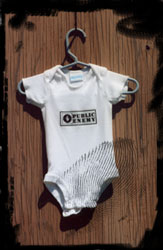
|
2009: a year of terrifying, satirical and fascinating art
Michael Rosen, Sinead Kennedy and China Miéville take a look back at the films, books, music and art that inspired them this year -------------------------------------------------------------- Michael Rosen In black and white, we watch several families slowly and disastrously going about their daily lives. They are each in their different ways overshadowed by the terrifying and stifling teachings of the church. It demands complete and utter obedience to the father in any given family and the pastor (also a father in both senses) in the village. When the father is the doctor, this gives him licence to sexually abuse his daughter. When the father is the pastor, this gives him licence to terrorise his children through fear of him and the divine retribution. The children are not totally cowed by this, but their response is for the most part destructive and vindictive. The film can be taken as a classic microcosm of how power works, but it’s also an investigation into the generation that grew up to be adults in the Nazi period. This year might have been the year that Adrian Mitchell, who tragically died in December 2008, consolidated his reputation and that allowed him to enjoy a sense that his life’s work had been appreciated and enjoyed by hundreds of thousands of people. In two different volumes, one for children and one for adults, his poetry has been collected together – Tell me Lies and Umpteen Pockets. Meanwhile a new and gloriously ambitious book for all has come out with Shapeshifters. Tell me Lies takes us back through the great political work that Adrian gave us for over 40 years with its supporting, cajoling, satirising and demolishing. Umpteen Pockets will take adults and children together on a crazy, happy-sad journey with an explosion of images and sounds. Shapeshifters is a modern telling in verse of the Roman poet Ovid’s Metamorphoses – a mind-blowing exploration of change, sometimes terrifying, sometimes exhilarating, always fascinating. Michael Rosen is a children’s author and broadcaster
Sinead Kennedy While we might miss the visual dynamics of watching Waits bend and twist himself into the music, we are more than compensated by the power of his gravelly, whiskey-soaked and utterly unique vocal delivery. One of the many things that makes Glitter and Doom so pleasurable is that it incorporates wildly different sections from Waits’ career but stays away from the hits. It draws mainly from the margins of his back catalogue with gems like “Lucky Day”, “Dirt in the Ground” and the sublime “The Part You Throw Away”. Tom’s Tales, a second disc, is a wonderful collection of Waits’ chatter between tracks and is full of the funny musings of this melancholy troubadour. Capturing the power of one art form through the prism of another is no easy task, but two books published this year stand out for their ability to achieve precisely this. Kenneth Turan’s Free For All, an oral history of the controversial working class US theatre producer Joe Papp, conveys the complex, chaotic nature of theatrical creation. Through a series of interviews with friends, collaborators, and the odd enemy, Turan reveals the life of a man who engaged in battle with anyone he thought stood in the way of making theatre accessible to everyone. Sometimes it is easy to forget that there is more to sci-fi than epic war games and psychopathic aliens. Duncan Jones’ directorial debut, Moon, is a gentle reminder of just how subversive and speculative the genre can be. Moon is the story of Sam Bell, a solitary astronaut doing a three-year stretch on the lunar surface in service of a multinational corporation. His only companion is Gerty, the on-board computer. Gesturing to classics like Solaris and 2001: A Space Odyssey, Jones fashions out of the vast, silent reaches of outer space a powerful drama of human loneliness and resilience. Kazuo Ishiguro’s book Nocturnes is a musically constructed collection of short stories, where the narrators are all musicians of one kind or another. Each of the five stories revolves around the themes of failure and regret. In the hands of a lesser writer this might be a dismal experience – but Ishiguro skilfully dignifies his characters’ struggles and fails to lose faith in possibility. Sinead Kennedy is a lecturer at Dublin City University
China Miéville I’m going to cheat and also mention my favourite fiction I read this year, even though it’s not out till early 2010. Consider it a trailer. Max Schaefer’s Children of the Sun is an astonishing debut, a beautifully written exploration of sexuality and the more arcane byways of fascism. My favourite movie hands-down was Muto, the stunning and lovely piece of public animation by the artist Blu. He caps my already boundless admiration by bypassing commercial distributors for Creative Commons, on a pay-what-you-can-if-you-can basis. The film’s available at » www.blublu.org/sito/video/muto.htm. If you like it and can afford it why not chuck Blu the price of a cinema ticket via the website. The work gave me considerably more pleasure than the last several years of Hollywood spitting in my face. Musically, I rather regret to say it, because I think it probably puts me obediently in line with the lumpen hipsterati, but I loved Fever Ray’s eponymous album. Spooky electronica with freaky lyrics. What’s not to like? China Miéville is an award-winning fantasy
writer whose novels include The City and The City, Perdido Street Station,
and The Scar Reprinted from www.socialistworker.co.uk |
